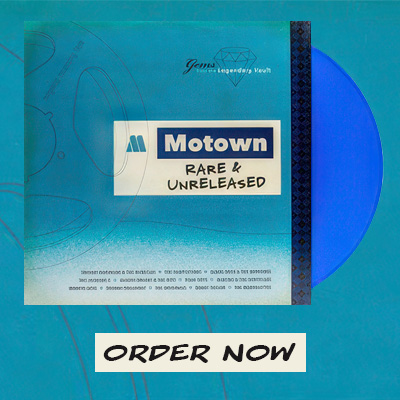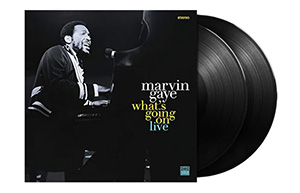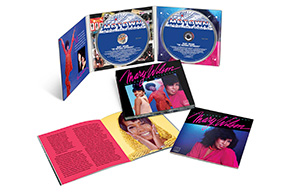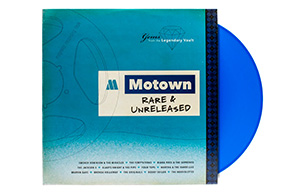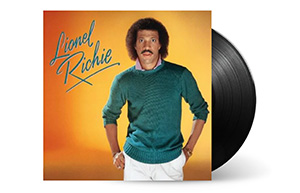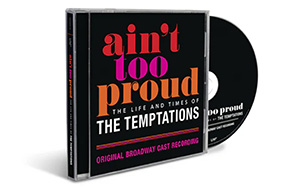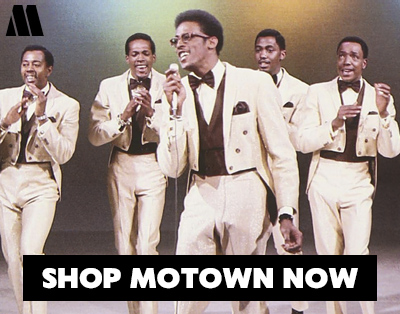Bonnie Pointer
As a member of the genre-bending vocal quartet the Pointer Sisters with her siblings, Bonnie Pointer enjoyed huge and unusual crossover success with pop, R&B and country hits, and when she went solo, she joined Motown and once again rode high on releases that climbed the pop, R&B and dance charts.
FAST FACTS:
- First Hit: “Free Me From My Freedom”
- Biggest Hit: “Heaven Must Have Sent You”
- Biggest Album: Bonnie Pointer (Red Album)
- Career Highlight: Her tour de force recording of “Heaven Must Have Sent You,” updating the Elgins’ Motown classic for the disco era, became a major pop hit and a huge international smash on the world’s dance floors.
She was born Patricia Eva Pointer, the fifth of six children and given the nickname “Bonnie” by a family friend. It stuck and growing up during the ‘50s and ‘60s in Oakland, California, the Pointer children – sisters Bonnie, June, Anita and Bonnie plus their two brothers, Aaron and Fritz, are encouraged to sing gospel by their parents, Elton and Sarah Pointer, who were both ministers. But the siblings secretly gravitate to other musical styles, eventually mastering them all – soul, blues, pop, jazz, rock ‘n’ roll and even country. As a teen, Bonnie persuaded June form a duo (called Pointers – A Pair, and then just The Pair) and seek a career in secular music.
June joins shortly afterward and they officially become The Pointer Sisters, working their way up the ladder to gigs as background singers for Bay Area-based acts like Grace Slick, Elvin Bishop, Sylvester and Taj Mahal. The sisters also start to write and record 30-second commercials for a San Francisco radio station.
They begin their recording career contributing background vocals on releases by Cold Blood, Elvin Bishop, the Hoodoo Rhythm Devils and Taj Mahal, among others between 1970 and 1973. They also sign with Atlantic Records in 1971 and release “Don’t Try To Take The Fifth,” a Honey Cone-soundalike track produced and co-written by New Orleans legend Wardel Quezergue. That and the follow-up, “Destination No More Heartaches” (another Quezergue production) fail to make an immediate impact. Around that time, Ruth joins her sisters and they become a quartet.
Signing with Blue Thumb Records in ‘73, they record their first LP and have their first hit with “Yes We Can Can” in 1973 (covering a New Orleans regional hit by Lee Dorsey, written and produced by Alan Toussaint), a funky rhythm and harmony track that just misses the Top 10 on both Pop and R&B charts.
Their success causes England’s Northern Soul scene to covet the flip side of their second Atlantic single, the catchy “Send Him Back.” It becomes a perennial dance floor favorite in Great Britain.
Dressed in campy, vintage thrift shop gowns, the Pointer Sisters create a unique visual image to match their vocal unpredictability. They rattle off six R&B chart hits – four in the top 20 – between 1973 and 1977. In ’74, they release “Fairytale,” a decidedly country flavored track written by Bonnie and Anita as the B-side of “Love In Them There Hills” (covering an early Gamble-Huff composition recorded by the Vibrations). Their manager Alan Rubinstein encouraged them to record “Fairytale,” convinced it would broaden their audience and, after DJs flipped the single, the one-time B-side charts high on both the pop (Number 13) and country (Number 37) charts. The Pointer Sisters earn a Grammy Award for “Fairytale” and are invited to Nashville where they become the first African-American group to play the Grand Ole Opry. Elvis Presley covers “Fairytale” on his Today LP and often performs it live until his final shows in 1977.
In ’75, they top the R&B chart with “How Long (Betcha Got A Chick On The Side)” in ’75, which is nominated for a Grammy.
The Pointer Sisters lineup begins to splinter in 1975 as June hits pause on her music career and in ’77, Bonnie decides to go solo. She marries Motown producer Jeffery Bowen and signs with Berry Gordy’s company.
With Bowen and Berry producing, she records the LP Bonnie Pointer, arranging and singing all lead and background vocals. The LP is released in 1978 and that October, its first single, “Free Me From My Freedom/Tie Me To A Tree (Handcuff Me),” begins its rise to Number 10 on the R&B chart and 53 on the Pop chart, although the title causes resistance from some radio programmers who decline to play the record. Cash Box notes the record remains on its charts 22 weeks. Aiming at the still-emerging disco market, an instrumental version of the track is the B-side of the single.
In April ’79, Motown releases a second single from the LP, a cover of the Elgins hit, Holland-Dozier-Holland’s “Heaven Must Have Sent You.” Then a special disco re-mix is also released with Carolyn Franklin, Aretha’s sister, assisting on backing vocals and Bonnie’s ad-libbed growling scat singing toward the track’s end, and the record explodes. Although the single strangely only hits 53 on the R&B chart, it sails to Number 11 on the Pop chart and Number 1 on the Dance charts, where it stays for almost six months.
Bonnie’s “Heaven” becomes an international dance sensation, as Motown releases the record in Canada, Mexico, Peru, Brazil, Guatemala, the UK, the Netherlands, France, Belgium, Japan, Australia and New Zealand.
The success of “Heaven” causes Motown to re-press her first LP with the longer disco mix in place of the original mix. The LP reaches Number 34 on the R&B LP chart and 96 on the Pop LP chart.
Following up “Heaven,” the third single from the LP covers another Motown classic, Smokey Robinson’s composition “When I’m Gone,” a somewhat faster-paced version than Brenda Holloway’s 1965 hit. It does not chart.
Bowen and Bonnie go back into the studio for a follow-up LP on which Bonnie again sings and arranges all the background vocals and Bowen produces on his own. Building on the successful formula of the first LP’s biggest hit, they record five classic Motown hits of Holland-Dozier-Holland (who had mentored Bowen at both Motown and Invictus/Hot Wax) re-arranged for the disco market. It is released in ’79 and, as with her first album, this LP is also entitled Bonnie Pointer. Fans distinguish the two albums by the color of their covers: The first one is known as the “Red Album” in the U.S. while the second is the “Purple Album.” In the UK, fans call the second LP Bonnie Pointer II.
The first single released from the Purple Album in November 1979 covers the Four Tops 1965 hit, “I Can’t Help Myself (Sugar Pie, Honey Bunch),” and becomes another dance chart monster. It also succeeds on both the R&B and pop listings, peaking at 42 and 40 respectively.
The only non-HDH track on the second LP, Bonnie’s composition “Deep Inside My Soul” (which she co-writes with Bowen’s frequent collaborator Donald Baldwin and says was intended for Al Green), is pulled from the second LP as the next single in March 1980. It fails to chart.
A contract dispute over royalties forces Bonnie and Bowen to leave Motown after the Purple Album and they eventually land with Private Records where Bonnie releases a third LP If The Price Is Right in 1984.
She intermittently records and performs over the next three decades, including sporadic on-stage reunions as a Pointer Sister. She releases a fourth LP Like A Picasso in 2011.
In 2012, the Bonnie Pointer Red Album is released on CD in the UK by Big Break Records. It adds five bonus tracks including disco mixes and singles versions from the LP.
“Motown was the label that every black artist strove to be associated with,” Bonnie tells author James Arena for his 2016 book Legends of Disco. “To be able to say that I recorded on Motown was the greatest thing that ever happened in my life. Growing up in the ‘50s and ‘60s with that music – it was incredible that I became part of it.”




